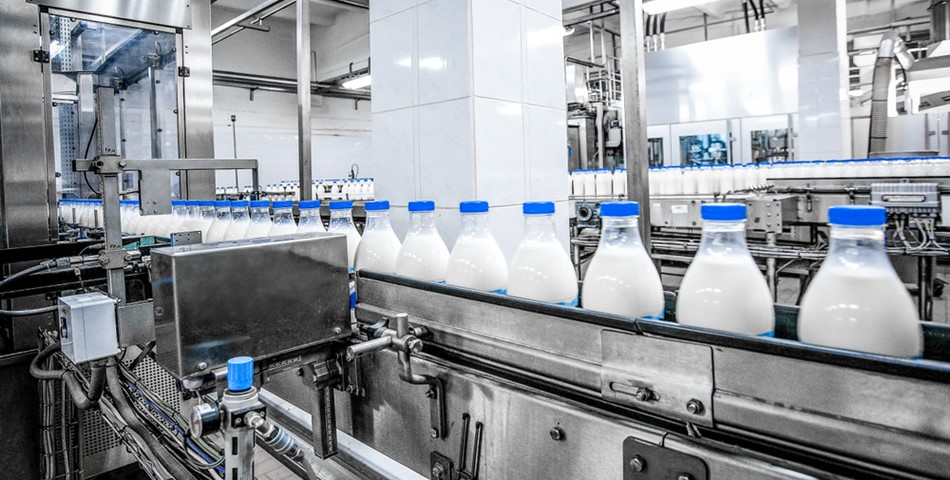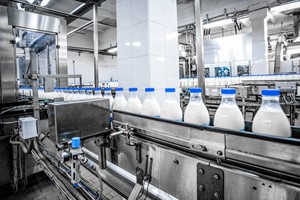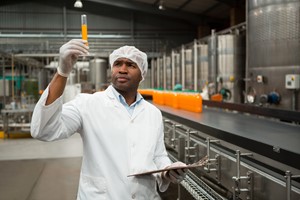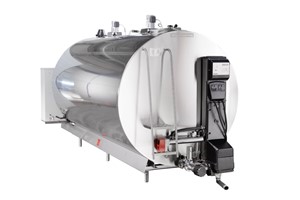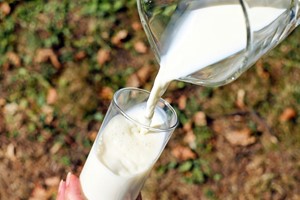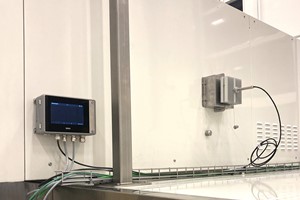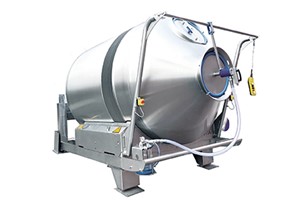The world of technology and automation has become increasingly useful across numerous industries in recent years and decades, and a great example here is the dairy processing industry. From playing a major role in dairy processing organization through improving sustainability and several other areas, the use of quality automation programs can be highly beneficial among dairy processors when used correctly.
At Idaho Milk Products, we’re happy to not only provide a range of dairy proteins, milk permeate and other related products, but also to offer insights into the wide world of dairy production. How has automation impacted several different parts of this realm? Here’s a rundown on a few of the most notable areas.
Forms of Automation Usage in Dairy Processing
Broadly speaking, there are two major ways automation technology is used today within dairy processing facilities:
Prior to facility construction: In many cases, those designing and constructing dairy processing plants will incorporate various levels of automation into the plans from the outset. This can include anything from installing automated milking systems to equipping a processing plant with industrial robotics for product handling and packing. It may also include the use of vision systems and sensors to detect product quality and other parameters.
During production: Once a plant is up and running, there’s still a lot that can be done with automation to improve efficiency and output. This includes installing equipment like conveyor belts and pumps that are controlled by programmable logic controllers (PLCs), using batch process control software to manage multiple tasks simultaneously, and incorporating automatic cleaning and sanitizing systems into the plant’s operation.
Product Quality and Consistency
One of the single most notable benefits of automation in dairy production is the way it can help maintain product quality and consistency. Automated systems are much less likely to be influenced by human error, which can often lead to inconsistency in terms of product appearance, taste, and other factors. This is particularly important for those in the food industry, as even a minor deviation from expected quality standards can lead to a product being rejected by consumers.
Various automated controls allow plant managers to set specific quality parameters and then have those systems automatically adjust processes as needed to ensure that products meet or exceed those standards. This can include adjusting things like protein content, temperature, pH levels, and more.
Food Safety
Another area that’s of paramount importance for those in the dairy industry is food safety. Automated systems can help ensure that products are handled and processed in a safe manner, from start to finish. For example, many plants use vision systems to detect contaminants on food product surfaces. Once these contaminants are identified, the system will automatically halt production and/or divert the product to a quarantine area for further inspection.
Another important process here is controlled cleaning, which can be accomplished with the help of automated systems. These systems can be programmed to clean and sanitize specific areas of the plant at predetermined times, which helps to ensure that all surfaces that come into contact with food are kept free of contaminants.
Sustainability
When it comes to dairy production, one of the key goals for many processors is to operate in a sustainable manner. Automation can play a major role in helping to achieve this goal by optimizing processes and reducing waste.
An essential part of this is the use of energy-efficient equipment, which can help plants minimize their overall power consumption. Additionally, many automated systems can be configured to recycle or reuse materials wherever possible, thus helping to reduce the amount of waste that’s produced.
Increases in Production Capacity
Because automated systems can function 24 hours a day, 7 days a week, they can often help processors achieve significant increases in production capacity. This is particularly true for systems that are integrated into the plant’s overall control architecture, as these systems can be used to coordinate multiple tasks simultaneously. This leads to increased efficiency and less down time for the plant.
In many cases, dairy processors that have incorporated automation into their operations have seen a significant increase in production capacity, often by as much as 50%.
Tracking Products
Another area that’s become more and more important for dairy processors in recent years is the tracking of products throughout the supply chain. This can help ensure that products are delivered to retailers in a timely manner and that customers can trace the origins of specific items.
Many automated systems include tracking capabilities, which allow processors to keep tabs on products at all times. This information can be accessed in real-time, thus allowing processors to respond quickly and effectively if any issues arise.
Production Control
Dairy manufacturers want to have as much control over their production process as possible. Automation can provide this control by helping processors to schedule and manage tasks, set quality controls, and track product movement.
This level of control is essential for those in the dairy industry, as even the slightest variation from expected standards can result in a product being rejected by consumers. Automated systems help to minimize these variations by allowing processors to set specific quality parameters and then have those systems automatically adjust processes as needed to ensure that products meet or exceed those standards. This can include adjusting things like milk fat content, temperature, pH levels, and more.
As the dairy industry has become more automated, the benefits of this technology have become more apparent. Automation is vital across several parts of this industry, from improving product quality and reducing waste to increasing production capacity. When used correctly, automation can help processors achieve their goals and operate in a more sustainable manner.




